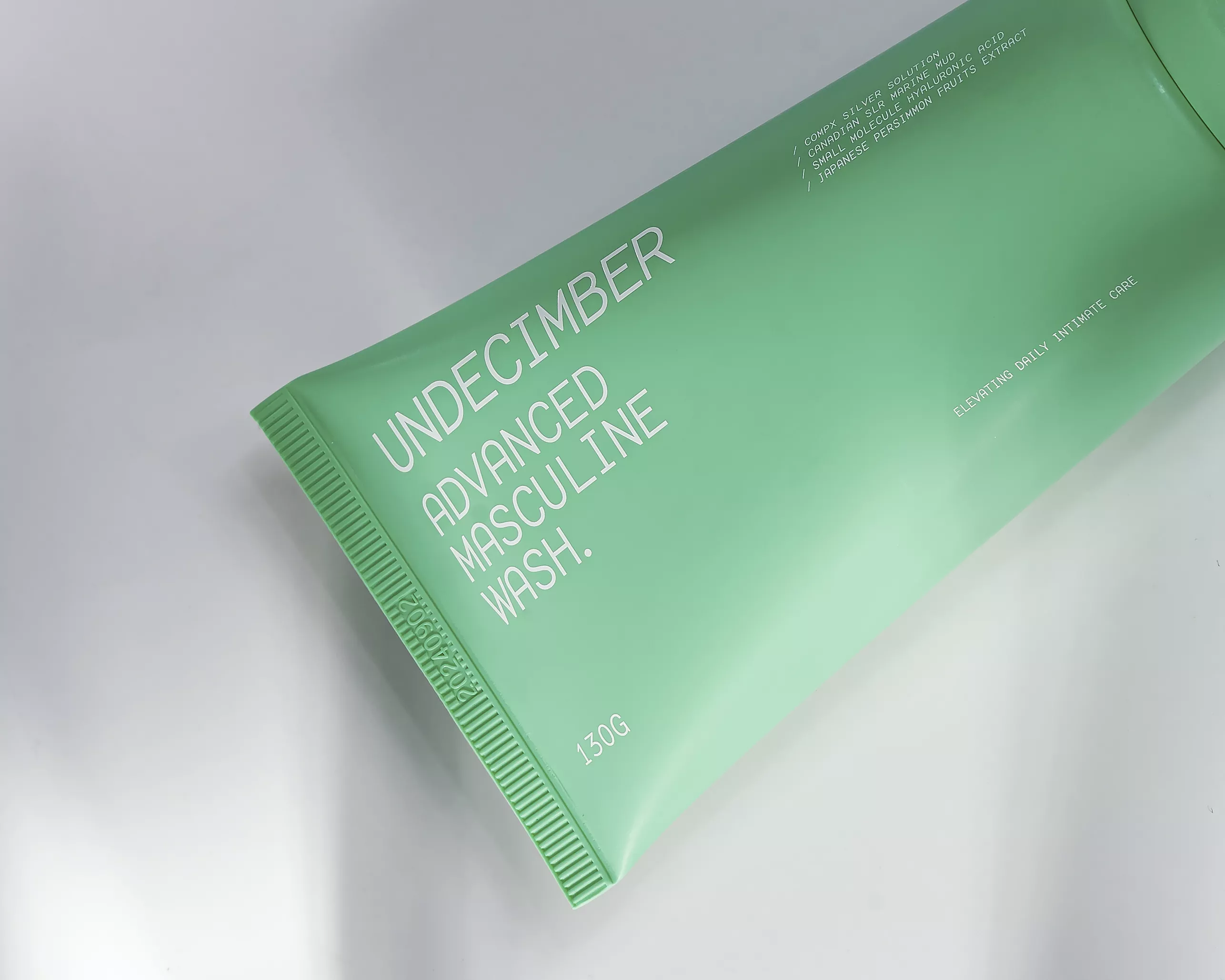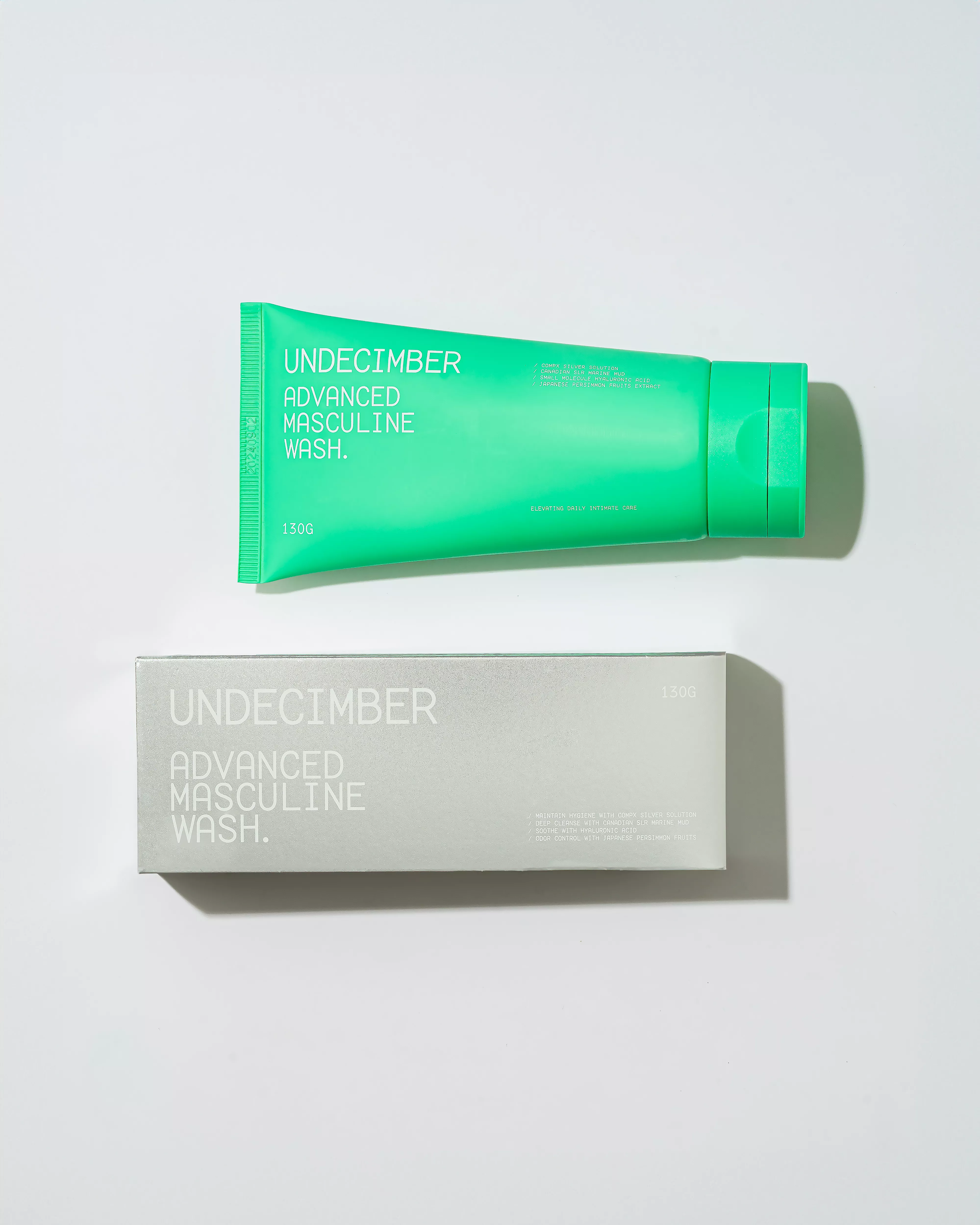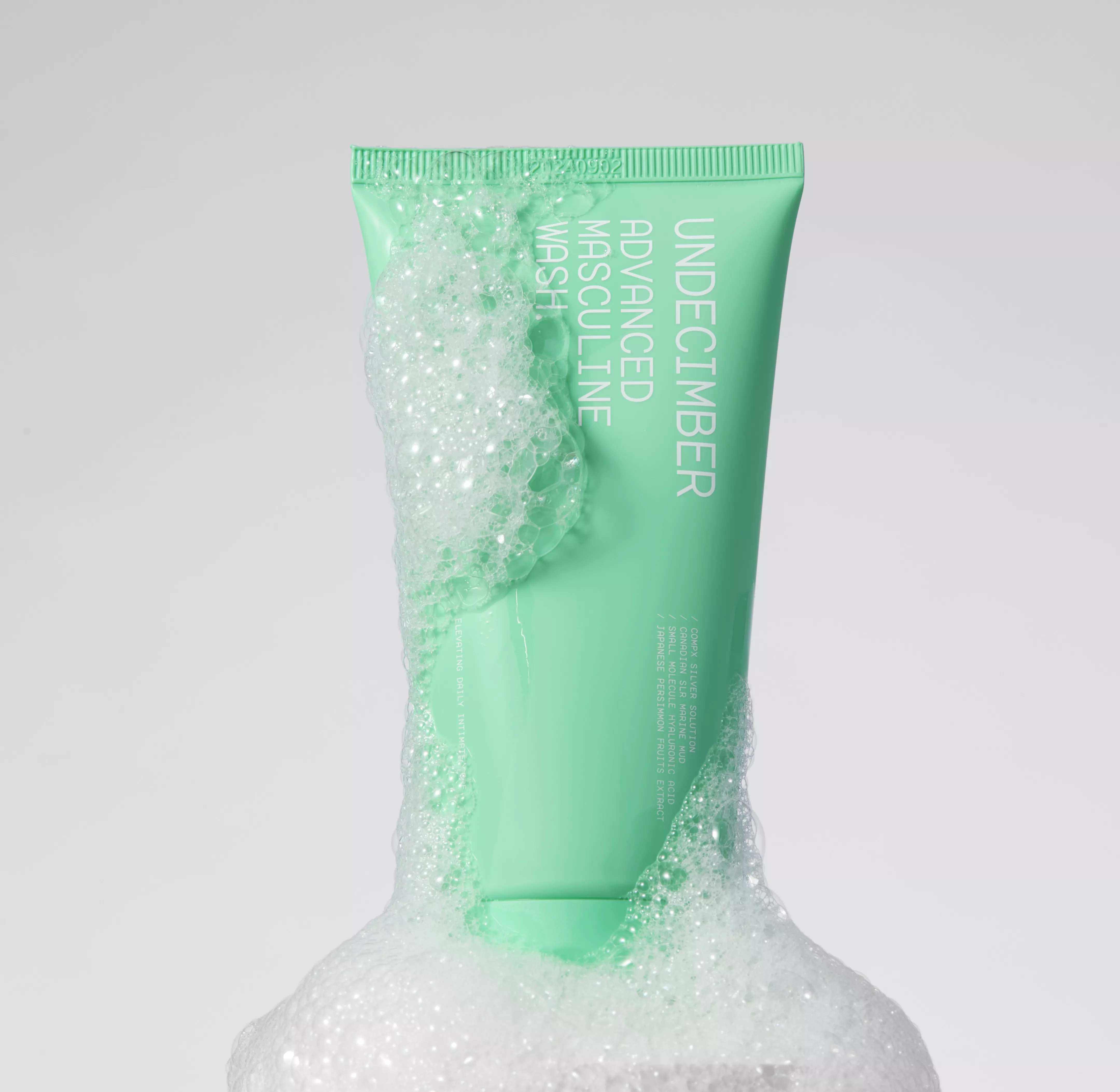7 Causes of Smelly Penis
19106
Discover the causes of penis odor—poor hygiene, infections, sweat, and diet. Learn simple tips to treat and prevent smells.

Why Does My Penis Smell?
A mild odor from the penis is normal, but a fishy smell may indicate an infection or poor hygiene. If the odor persists or is accompanied by symptoms like pain, discharge, or irritation, consult a healthcare provider. Good hygiene, staying dry, and wearing breathable underwear can help prevent odors.
The Causes of a Smelly Penis
A smelly penis can have many causes, from poor hygiene to infections, sweat, diet, and underlying health conditions. Learn how to prevent it and keep your genital health in check.
1. Sweat
The genital area is prone to sweating. If sweat isn’t cleaned off properly, it can mix with bacteria, creating a sour or musty smell.
- Smegma is a thick, white or yellowish buildup of dead skin cells, oils, and moisture under the foreskin in uncircumcised men or around the clitoral hood. Poor hygiene can lead to excessive buildup, causing odor or irritation.
- Causes: Poor hygiene and failure to clean the genital area regularly can lead to smegma buildup. It’s more common in uncircumcised men due to the foreskin trapping it.
- Prevention: Regularly wash under the foreskin with warm water to remove smegma, and ensure the area is fully dried to prevent buildup.
2. Poor Hygiene
Not washing the penis properly, especially under the foreskin (for uncircumcised men), can lead to the buildup of sweat, dead skin cells, oils, and bacteria, causing an unpleasant smell.
3. Dietary Factors
Certain foods (like garlic, onions, or spicy foods) can alter body odors, including genital odor. Alcohol and caffeine may also contribute to a stronger smell.
4. Underlying Health Conditions
Health conditions like diabetes, obesity, or a weakened immune system can make individuals more prone to infections and odor. These conditions may lead to a stronger or distinct smell due to increased moisture or bacterial growth.
5. Bacterial or Fungal Infections
Infections such as balanitis (inflammation of the penis head) or yeast infections can cause foul odors, often accompanied by redness, swelling, itching, or discharge.
- Yeast infections in men cause itching, redness, pain, discharge, and odor. They are caused by poor hygiene, antibiotics, or diabetes. Treatment includes antifungal creams.
- Symptoms: Itching, redness, swelling (especially on the penis head), pain during sex or urination, thick white discharge, and a yeasty smell may indicate an issue.
- Causes: Candida overgrowth can result from poor hygiene, antibiotics, diabetes, unprotected sex, and a weakened immune system.
- Treatment: Antifungal creams treat the infection, while good hygiene and regular washing prevent it. Avoid tight clothes to reduce moisture and yeast growth.
- Balanitis is caused by poor hygiene or infections and can be treated with proper hygiene and creams.
- Symptoms: Redness, swelling, pain during sex or urination, itching, and thick or smelly discharge may signal an infection.
- Causes: Poor hygiene (especially in uncircumcised men), infections, skin conditions like eczema, and allergies to soaps, lotions, or condoms can cause genital issues.
- Treatment: Good hygiene, gentle washing and drying, topical creams (antibiotics or antifungals), and avoiding harsh soaps can help prevent and manage issues.
6. Sexual Activity
After sex, semen, bodily fluids, or bacteria can remain on the penis and produce a smell if not cleaned away promptly. Chlamydia and Gonorrhea can also cause abnormal odors.
- Chlamydia is a common sexually transmitted infection (STI) caused by the bacteria Chlamydia trachomatis. It can infect the genital area, eyes, or throat.
- Symptoms: Painful urination, discharge from the penis (clear or cloudy), testicle pain or swelling, and rectal pain or discharge (from anal sex) may signal an infection.
- Causes: Unprotected sex (vaginal, oral, or anal) with an infected person and sharing sex toys without cleaning them can spread infections.
- Treatment: Treated with antibiotics, typically a single dose or a week-long course.
- Gonorrhea is a sexually transmitted infection (STI) caused by the bacteria Neisseria gonorrhoeae. It can affect the penis, throat, rectum, or eyes.
- Symptoms: Painful urination, yellow or green discharge, testicle pain or swelling, and a sore throat (from oral sex) may indicate an infection.
- Causes: Unprotected sex (vaginal, oral, or anal) with an infected person and sharing sex toys without cleaning them can spread infections.
- Treatment: Treated with antibiotics, usually a combination of an injection and oral medication.
7. Urinary System
Traces of urine left after urinating, especially if not wiped properly, can result in a lingering odor. Proper cleaning is important to avoid this issue. Non-Gonococcal Urethritis (NGU) and Urinary Tract Infections (UTI) can also contribute to odor.
- Non-Gonococcal Urethritis (NGU) is urethral inflammation caused by infections like Chlamydia, Mycoplasma, or other bacteria, excluding gonorrhea.
- Symptoms: Painful urination, clear or cloudy discharge, itching or irritation inside the urethra, and pain during sex may indicate an infection.
- Causes: Sexual contact with an infected partner and poor hygiene or irritation from chemicals (like soaps or lotions) can lead to infections.
- Treatment: Treated with antibiotics, typically targeting the bacteria responsible for the infection.
- Urinary Tract Infection (UTI) is an infection in any part of the urinary system, including the bladder, kidneys, urethra, or ureters. It’s more common in women but can also affect men.
- Symptoms: Painful urination, frequent urges with little output, cloudy or strong-smelling urine, pelvic pain, and blood in the urine may indicate an infection.
- Causes: Urinary tract infections can be caused by bacterial infections (like E. coli), sexual activity, poor hygiene, urinary retention, or a weakened immune system.
- Treatment: Treated with antibiotics. It’s important to complete the full course of medication to fully clear the infection
Add us on Line and stay in touch.
Say Goodbye to Unwanted Odor with These Simple Solutions!
Tired of dealing with a smelly penis? Achieve freshness and confidence with these easy steps
1. Gentle, Unscented Soap
Use a mild, fragrance-free soap to clean your skin without irritation. Avoid harsh chemicals or strong fragrances that can disrupt your skin’s natural balance.
- Why: Mild, unscented soaps are ideal because they cleanse without disrupting the skin's natural balance or causing irritation. They avoid fragrances and harsh chemicals that could lead to discomfort or dryness.
- Recommended Type: Look for soaps that are labeled as “sensitive skin” or “hypoallergenic.”
2. Fragrance-Free or Hypoallergenic Body Wash
- Why: If you prefer using body wash, choose a fragrance-free or hypoallergenic formula. These products are less likely to irritate sensitive skin and are formulated for all-over use, including the genital area.
- Recommended Type: A gentle, non-scented body wash that is free from harsh chemicals and artificial fragrances.
3. Occasional Antibacterial Soap
If the odor is caused by bacteria, use an antibacterial soap occasionally to control bacterial buildup. Avoid daily use to prevent dryness.
- Why: If bacteria are causing the odor, an antibacterial soap can help. However, it should be used sparingly because excessive use may dry out the skin or disrupt the natural microbiome.
- Recommended Type: Use an antibacterial soap occasionally to help reduce bacterial buildup.
4. Antifungal Cream (If Needed)
For fungal-related odors, consider using antifungal cream to treat infections that may cause odor, such as yeast infections.
5. pH-Balanced Intimate Wash
An intimate wash designed to maintain a healthy balance of bacteria can help prevent irritation and odors in the genital area.
- Why: pH-balanced washes are specifically formulated for the genital area. They help maintain a healthy balance of bacteria and avoid irritation, which is crucial in preventing odor.
- Recommended Features: Look for products that are alcohol-free, gentle, and designed for intimate hygiene.
6. Body Powder for Freshness
Apply an unscented body powder to absorb excess moisture and reduce odor, especially if you tend to sweat a lot.
7. Alcohol-Free Wipes
Use alcohol-free wipes to quickly refresh and clean the area throughout the day without irritation.
- Why: Alcohol-free wipes are useful for quick, on-the-go refreshment and cleaning. They help maintain cleanliness without causing irritation or dryness.
- Recommended Use: These wipes can be helpful during the day for a quick refresh, especially if you sweat a lot.
8. Probiotics for Internal Balance
Probiotics can help maintain a healthy balance of bacteria in your body, preventing issues like yeast infections that can cause odor.
9. Wear Breathable Clothing
Choose cotton underwear and wear fresh clothes daily to keep the genital area dry and prevent moisture buildup that can lead to odor.
Key Considerations for Freshness and Hygiene
For optimal hygiene, prioritize products designed for sensitive skin to keep the area clean, fresh, and free from irritation.
- Choose Gentle, Fragrance-Free Products: Opt for mild, unscented soaps or pH-balanced intimate washes that are hypoallergenic to prevent irritation and maintain skin health.
- Use Antibacterial or Antifungal Products Sparingly: Only use these when necessary, and follow instructions to maintain the skin’s natural balance and avoid disruption.
- Avoid Scented Products: Fragrances in soaps, body washes, or sprays can irritate the sensitive genital area and worsen odor issues.
- Extra tips: Stay hydrated to flush toxins from your body. If odor persists or you experience other symptoms, consult a healthcare provider to rule out infections.
Keep It Clean and Gentle with Baby Soap
Looking for a mild option to wash the penis? Baby soap is a great choice! Designed for sensitive skin, it’s gentle, free of harsh chemicals, and unlikely to cause irritation—making it ideal for keeping the genital area clean while preserving the skin’s natural balance.
Here are some tips to get the best results with baby soap
- Choose the Right Formula: Look for a hypoallergenic, unscented baby soap to avoid fragrances or additives that could irritate sensitive skin.
- Clean Gently: Use a light touch, especially if you're uncircumcised. Avoid scrubbing too harshly to protect the sensitive skin, particularly under the foreskin.
- Avoid Overuse: While baby soap is mild, using it too frequently can lead to dryness. Be sure to moisturize if necessary after washing.
Baby soap is a safe, gentle option for keeping the area fresh. But if irritation occurs, consider switching to a specialized pH-balanced intimate wash for extra care.
Gentle & Powerful Care with Undecimber™ Wash
Achieve optimal hygiene and comfort with Undecimber™ Advanced Masculine Wash – the ultimate solution for men’s intimate and sensitive areas.
Why Choose Undecimber™ Wash?
- Gentle & Effective Formula: Cleanses and rejuvenates, eliminating bacteria and odors while being gentle on the skin.
- Hypoallergenic & Dermatologically Tested: Safe for all skin types, including sensitive skin.
- Advanced Ingredients: Made with amino surfactants, much gentler than regular body washes, to provide superior care without irritation.
- Powerful Bacteria & Odor Control: Ideal for intimate areas such as the anus, armpits, and other spots prone to bacterial buildup.
- Soothing & Anti-Inflammatory: Infused with hyaluronic acid and dipotassium glycyrrhizate, perfect for intimate shaving and reducing inflammation.
- 99.9% Bacteria Prevention: Silver nanoparticles release anions and oxygen, ensuring a bacteria prevention rate of 99.9%.
Undecimber™ Wash is free from harsh chemicals, balances moisture, and promotes healthy skin. Experience the benefits of a product designed for your most delicate areas.
Visit PULSE Clinic Today to get your Undecimber™ Wash and keep your skin refreshed, protected, and clean
Finding Relief & Prevention Tips
To find relief and prevent a smelly penis, try these tips that can help keep the area fresh and prevent unpleasant odors.
- Maintain good hygiene: Wash the penis regularly with mild soap and water, especially under the foreskin (if uncircumcised), to remove sweat, bacteria, and smegma.
- Dry thoroughly: After washing, make sure the area is fully dry to prevent moisture buildup, which can encourage bacterial growth.
- Wear breathable underwear: Choose cotton underwear to allow airflow and reduce sweat and moisture in the genital area.
- Stay hydrated: Drinking plenty of water helps dilute urine, reducing its odor and preventing concentrated urine from causing smells.
- Avoid irritating products: Use gentle soaps and avoid scented products that can irritate the genital area.
- Practice safe sex: Use condoms to reduce the risk of infections that can cause odor, such as bacterial or fungal infections.
- Seek medical advice: If the odor persists despite good hygiene or is accompanied by pain, discharge, or irritation, consult a healthcare provider for possible infections like yeast infections, UTIs, or other conditions.
When to See a Doctor
Good hygiene can typically resolve unusual odors, as natural scents are normal. See a doctor if you experience any of the following symptoms
- Persistent odor despite good hygiene
- Pain, swelling, or irritation
- Unusual discharge or blood
- Worsening itching or redness
- Suspected infection or STD, like yeast infections, UTIs, or balanitis
What to Do If I'm Infected?
If symptoms persist or you notice signs like fever, pus, or painful sores, consult our doctors for a proper diagnosis and treatment plan.
1. Common Conditions to Consider
- Yeast Infections: Often seen in men with diabetes or after antibiotic use.
- Bacterial Infections: Caused by poor hygiene, STIs, or skin injuries.
- Sexually Transmitted Infections (STIs): Such as gonorrhea, chlamydia, or herpes.
2. Follow Treatment Instructions
Once diagnosed, follow your healthcare provider’s prescribed treatment, including antifungal or antibiotic creams, oral meds, or special washes.
3. Don’t Self-Diagnose
Seek professional advice to ensure proper treatment and prevent complications. If in doubt, get medical help to address your symptoms effectively.
You're not alone – we've got your back! If you are experiencing these issues, and you think that you need a test, please speak to our doctor.
At PULSE Clinic, we're here for all your health questions and concerns.
To book an appointment, please email us at info.bkk@pulse-clinic.com or chat with us on your preferred platform.
![]() +66-84-226-2569
+66-84-226-2569  @PulseRx
@PulseRx ![]() PULSEClinic
PULSEClinic
Trust PULSE CLINIC to take care of your health like other 45000 people from over 130 countries. We provide discreet professional service with high privacy. Here to help, not to judge.
Loading...
Clinic Locations
Loading...












